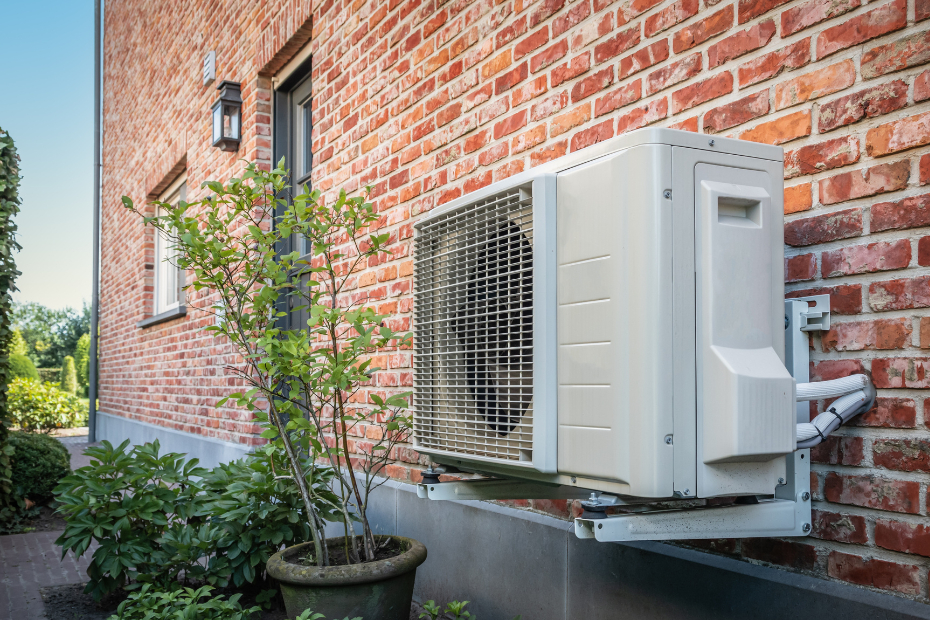Published June 1, 2023 • 4 Min Read
If you’re looking for ways to reduce your home’s utility bills, you might have heard the buzz about heat pumps. They’re a cost-efficient alternative to traditional heating and cooling systems.
But what exactly is a heat pump, and is it right for your home?
How does a heat pump work?
The name ‘heat pump’ can be a bit misleading, as they work to both heat and cool your home.
There are many kinds of heat pumps, but they all operate on the same basic principle: heat transfer. During the colder months, it will warm your home by extracting heat from the outdoor air or ground and move it inside. In the warmer seasons, it’ll act like an air conditioner and cool your home by moving heat from inside to the outdoors.
The two most common types of heat pumps in Canada are:
-
Air-source heat pumps (ASHPs) transfer heat from the outside air
-
Ground-source heat pumps (GSHPs), which extract heat from the ground. GSHPs are also known as geothermal heat pumps or ground-coupled heat pumps
What makes a heat pump better for the environment?
Heat pumps can help to reduce greenhouse gas emissions because they are powered by electricity, whereas traditional heating and cooling systems often rely on burning fossil fuels. Electricity across Canada is a cleaner energy source than natural gas in many provinces — especially if the electricity is generated by renewable or non-emitting energy sources, like hydropower or nuclear.
Is a heat pump right for my home?
Deciding if your home is suitable for a heat pump depends on several factors:
Climate: While heat pumps are more efficient in moderate climates where temperatures don’t frequently drop below freezing, most heat pumps operate up to an outside low of -10 degrees Celsius.
However, it is possible for cold-climate heat pumps to operate between -25 and -30 degrees Celsius. GSHPs tend to be more suitable for Canadian winters as they work well in a wider range of climates, while ASHPs are commonly used in moderate climates. However, it’s important to note that the heat produced from a heat pump is less intense than a traditional furnace and may require some getting used to.
Insulation: As with any heating or cooling system, adequate insulation in your home’s walls, floors, windows, and attic will affect how much hot or cold air is lost. Good insulation helps keep the temperature inside your home from fluctuating with the weather, and can help to lower your utility bills.
Available space: Heat pump installation requires outdoor and indoor units, which may not be suitable for all properties, such as apartments or townhouses.
Ductwork: If your home has ductwork, it can simplify the installation of a heat pump by utilizing the existing duct system for distributing heated or cooled air. If you don’t have ductwork, you can still install ductless systems, such as mini-split heat pumps.
Return on investment: Before deciding if a heat pump is right for you, weigh up the cost-to-install, projected energy savings, and potential incentives or rebates in your area. Installing a heat pump may lower your overall energy usage and, in turn, reduce your energy bills, resulting in a good return on investment.
How much does it cost to install a heat pump?
The cost of heat pump installation in Canada varies, depending on some of the factors above.
The cost of installing an ASHP can range from approximately $4,000 to $10,000 or more, depending on the size of the system, the efficiency rating, and the complexity of the installation.
GSHP installations tend to be more expensive due to the additional cost of ground loop installation. The cost can range from $15,000 to $30,000 or more, depending on factors such as the size of the system, the length and type of ground loop (horizontal or vertical), and the specific site conditions.
Try to obtain multiple quotes from reputable HVAC contractors in your area and use this to compare with your current energy spending to determine whether a heat pump can help you save money in the long run.
Read more: When’s the right time to replace your furnace and air conditioner?
Are incentives available for heat pumps?
The Canada Greener Homes Initiative offers various incentives, including the Oil to Heat Pump Grant, which provides eligible households with up to $5,000 to cover costs that include the purchase and installation of heat pumps, necessary electrical upgrades, and safe removal of the oil take.
Some municipalities and utility companies across Canada also offer their own energy efficiency programs and incentives, including for heat pump installations. Find out more about heat pump programs available in your province.
This article is intended as general information only and is not to be relied upon as constituting legal, financial or other professional advice. A professional advisor should be consulted regarding your specific situation. Information presented is believed to be factual and up-to-date but we do not guarantee its accuracy and it should not be regarded as a complete analysis of the subjects discussed. All expressions of opinion reflect the judgment of the authors as of the date of publication and are subject to change. No endorsement of any third parties or their advice, opinions, information, products or services is expressly given or implied by Royal Bank of Canada or any of its affiliates.
Share This Article






